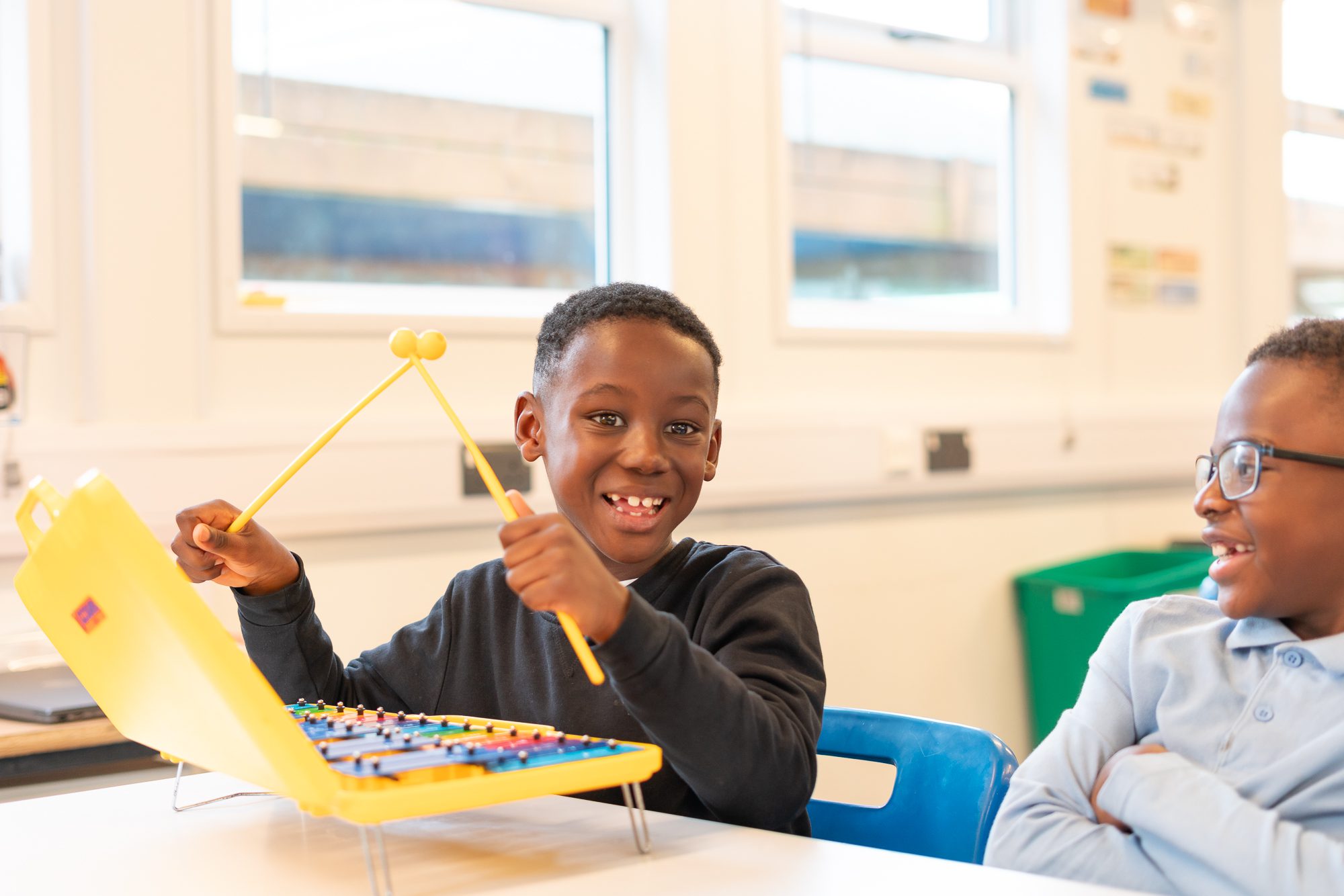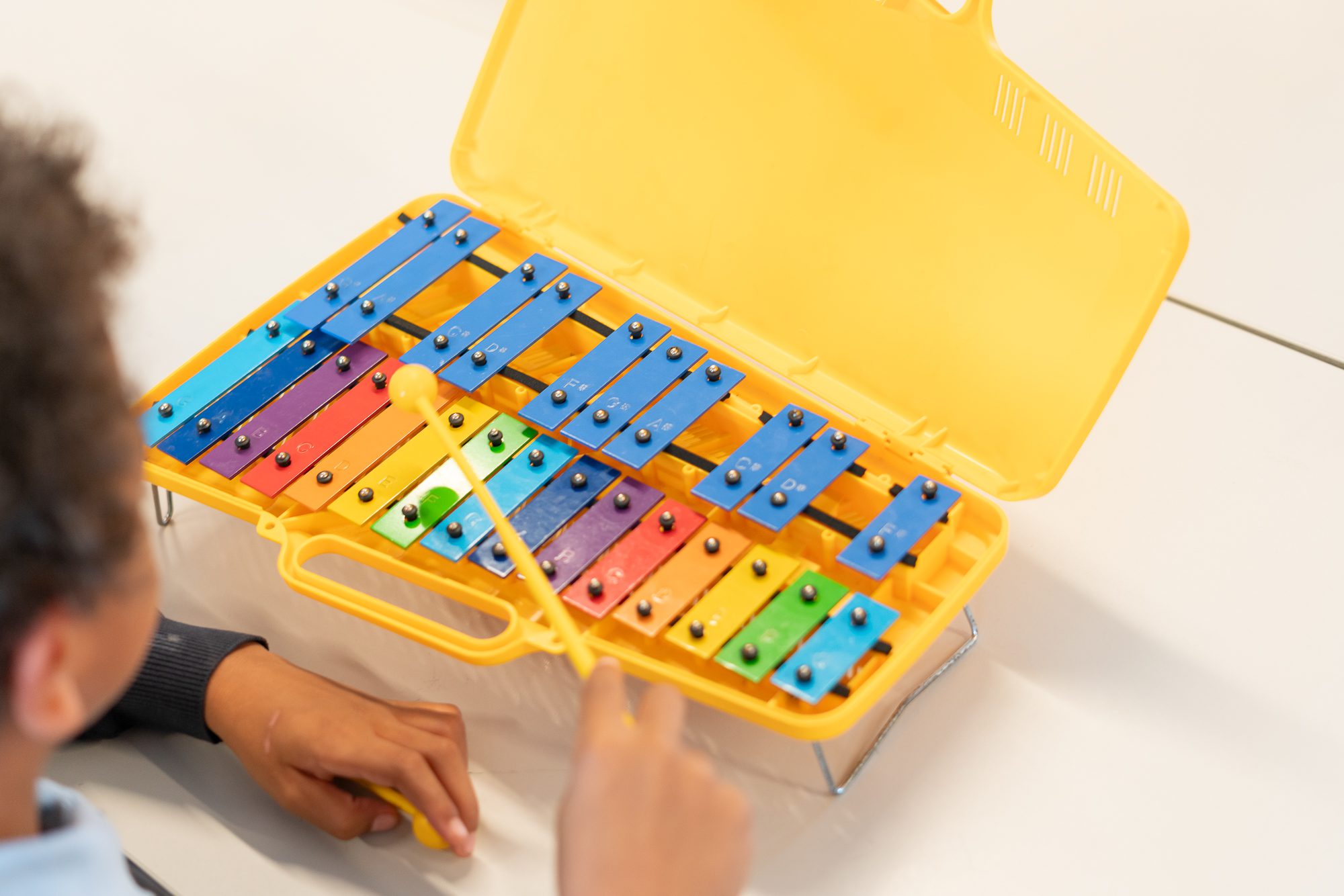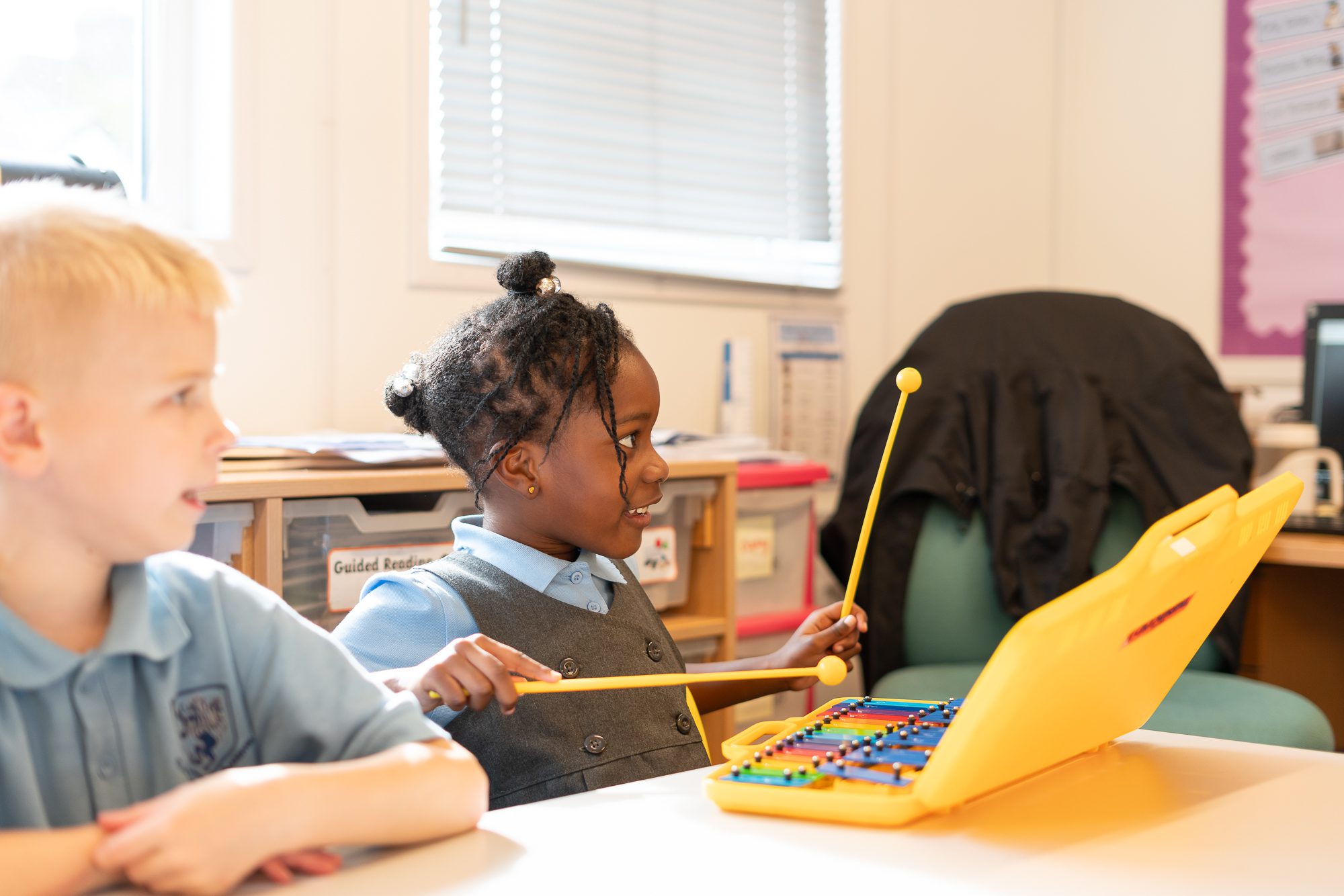Music Subject Leader: Miss C Foster
We value music because it is a powerful and unique form of communication that can change and impact the way we feel, think and act. Teaching music helps the body and the mind work together.
Intent
To develop an understanding of musical knowledge and skills and to inspire creativity, self-expression and a lifelong love of music.
At Rosherville we value music because it is a powerful and unique form of communication that can change and impact the way we feel, think and act. Music plays a key role in brain development and helps with the nurturing of language, motor skills, emotional intelligence and collaboration skills. We follow the Charanga scheme of work for the planning and delivery of Music lessons.


Implementation
The Charanga scheme provides weekly lesson plans with clear progression and includes engaging and exciting whiteboard resources to support every lesson. The Charanga scheme of work has a repetition-based approach to learning and this enables children to develop a deeper understanding and mastery of musical skills. During each lesson, children will participate in a range of musical activities. Children will listen and appraise a piece of music, this activity exposes children to a wide range of musical styles and genres and encourages children to consider how a piece of music is constructed alongside providing their own personal opinion on the piece. Children will then participate in musical activities linked to creating and exploring music, this will include singing activities, playing instruments, improvising activities and composing activities. Finally, children will perform and share what they have learnt during the lesson, this could be as a whole class, in small groups or individually. We also endeavour to include musical activities in other areas of the school curriculum, particularly in children’s early years of education.
Impact
Exposing children to music during early development helps them to learn the sounds and meanings of words. Dancing to music means children build motor skills while allowing them to practice self-expression. We believe that every child should have the opportunity to develop their musical potential and we aim to nurture and encourage musical development across the school.

Music in Each Stage
In EYFS, we follow the Charanga scheme of work for the planning and delivery of Music lessons. We also include singing and dancing activities in our daily routines and children are given opportunities to participate in musical activities during child-initiated learning. At Rosherville, we believe that music plays an important role in EYFS as it helps to build children’s confidence, aids in the development of children’s communication and language skills, encourages creativity and when incorporated with dance activities encourages children to move in a range of ways.
In KS1, pupils experiment with sounds, express their voices and perform simple rhythmical and melodic patterns. Pupils will be able to listen with concentration and recall sounds using aural memory. They will be introduced to pitch, dynamics, durations, tempo, texture and more.
KS2 will explore musical language in terms of singing in unison, playing tuned instruments, rehearsing performances and appreciating music production in different ways. Pupils will be given the opportunity to compose music and perform in extracurricular activities such as annual choir concerts and O2 Young Voices.
Music Progression
At Rosherville, we develop our pupil’s Musical understanding through essential skills; growing their depth of knowledge year after year. Through the use of ‘informal milestones’, we are able to monitor their progress and allocate extra support and adaptations to the curriculum for pupils to maintain a strong education.
SEND Information
Our SEND and disadvantaged pupils are given the necessary support in class to fully access the supported Music curriculum. Learning is adapted where necessary to support SEND/EAL pupils to give equal opportunities for all to be confident in approaching any problems faced. Interventions, support and challenges are constantly revised and adapted to ensure all children are supported in achieving learning. The above areas are robustly and continuously monitored to ensure any gaps in learning are addressed.

